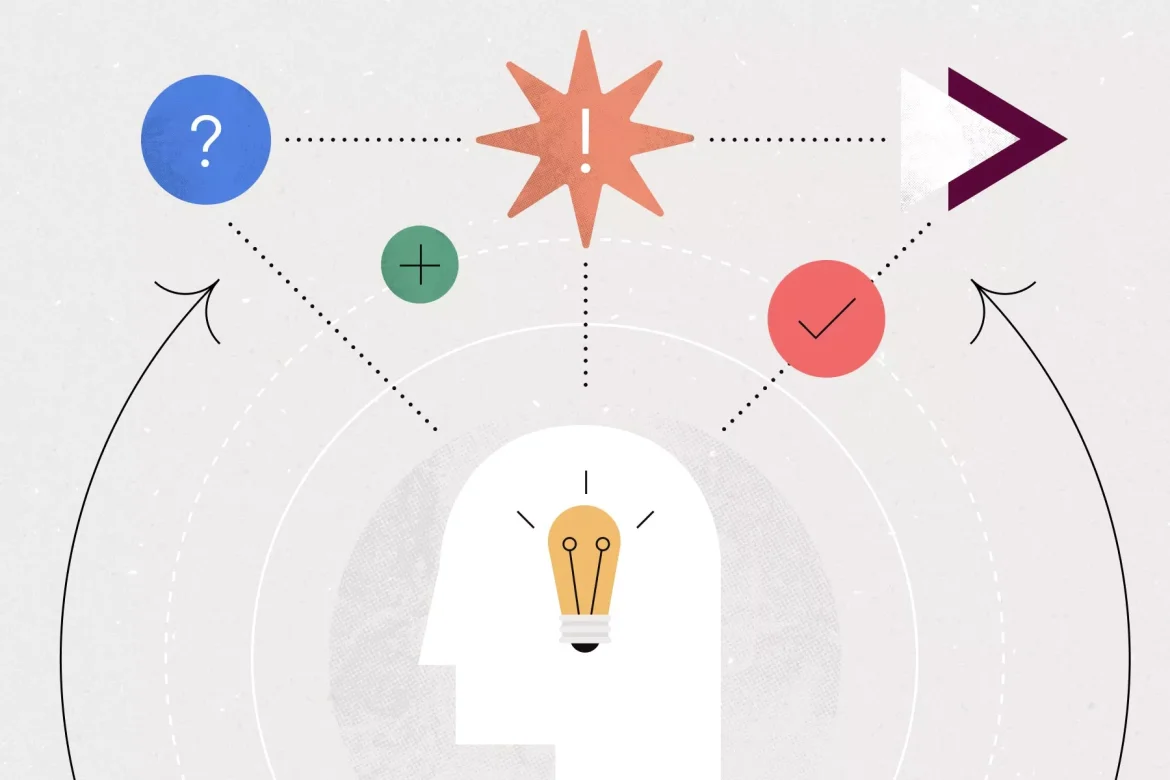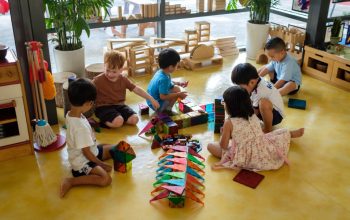Important Critical thinking skills are the foundation of logical reasoning, problem-solving, and informed decision-making. These skills enable children to process information, evaluate different perspectives, and develop independent thoughts rather than relying solely on memorisation. Instead of passively absorbing knowledge, children with strong critical thinking abilities actively engage with concepts, ask meaningful questions, and construct well-reasoned arguments.
Building these skills early helps children become more adaptable learners, equipping them with the ability to assess situations, make sound choices, and navigate the complexities of both academics and everyday life. Whether in the classroom, at home, or in social interactions, the ability to think critically empowers children to approach challenges with confidence and intelligence.
The 4Cs of Critical Thinking for Young Learners
Creativity: Thinking Beyond the Obvious
Critical thinking is not just about logic—it requires creativity. When children explore new ideas, imagine alternative possibilities, and construct original solutions, they strengthen their ability to approach problems from different angles. Activities such as storytelling, role-playing, and open-ended problem-solving exercises encourage children to push past conventional thinking and develop innovative solutions.
Encouraging creativity in thinking allows children to explore new perspectives, experiment with ideas, and develop a mindset that embraces curiosity and discovery. This enhances their ability to analyse problems with a fresh approach rather than relying on rigid, pre-learned answers.
Collaboration: Learning Through Interaction
Critical thinking is strengthened through discussion and teamwork. When children engage in group projects, debates, and shared problem-solving activities, they learn to consider different viewpoints, challenge ideas constructively, and refine their own reasoning.
Working with others also helps develop essential communication skills. Children learn how to articulate their thoughts clearly, justify their arguments with evidence, and listen actively to opposing perspectives. These interactions foster deeper understanding and encourage them to think beyond their own assumptions.
Communication: Expressing Ideas Clearly
The ability to think critically is only useful if a child can communicate their thoughts effectively. Whether through writing, speaking, or presenting ideas visually, communication is a vital aspect of critical thinking.
Children who practise articulating their reasoning develop stronger persuasive skills, gain confidence in expressing opinions, and refine their ability to construct logical arguments. Through structured discussions, storytelling, and analytical writing exercises, children learn how to present information in a way that is both clear and compelling.
Critical Thinking: Making Informed Decisions
At the heart of the 4Cs is the ability to think critically. This involves analysing information, identifying reliable sources, questioning assumptions, and evaluating different solutions before making a decision. Children with well-developed important Critical thinking skills are less likely to accept information at face value and more inclined to investigate concepts thoroughly.
By engaging in logical reasoning tasks, fact-checking exercises, and thought-provoking discussions, children build the ability to assess situations independently. This leads to smarter decision-making, a deeper understanding of the world, and greater confidence in their intellectual abilities.
How Important Critical Thinking Skills Build Smarter Learners
Strengthening Problem-Solving Abilities
Children with well-developed critical thinking skills do not rely on memorised answers. Instead, they assess situations, break problems into smaller parts, and develop logical solutions. This structured approach to problem-solving helps them navigate academic subjects more effectively, particularly in maths, science, and comprehension-based learning.
Developing Logical and Rational Thought
Logical reasoning helps children understand cause and effect, identify inconsistencies, and construct well-supported conclusions. When children learn to approach topics with a rational mindset, they avoid impulsive decision-making and develop a habit of thinking before reacting.
Encouraging Intellectual Curiosity
Critical thinkers are naturally curious. They ask insightful questions, seek clarification, and explore different perspectives before forming conclusions. This curiosity drives a love for learning and encourages children to approach education with enthusiasm rather than as a chore.
How Important Critical Thinking Skills Create Wiser Learners
Teaching Children to Analyse Information Objectively
In a world filled with information, being able to distinguish facts from opinions is essential. Children who develop critical thinking skills learn to verify sources, question credibility, and interpret data correctly before accepting information as truth. This ability is particularly crucial in today’s digital world, where misinformation spreads easily.
Helping Children Make Thoughtful Decisions
Wise learners do not rush into choices. Instead, they weigh different options, predict possible outcomes, and make informed decisions based on evidence rather than impulse. Whether choosing the best way to complete a project or resolving conflicts with friends, critical thinking guides children toward well-reasoned choices.
Building Emotional Intelligence and Empathy
Wisdom is not just about intelligence—it is about understanding others. Critical thinkers develop empathy by considering multiple viewpoints and understanding different experiences. Through discussions and problem-solving tasks that involve real-world scenarios, children learn to appreciate different perspectives, leading to better interpersonal relationships and social awareness.
What Parents Should Keep in Mind
Encourage Independent Thinking at Home
Allow children to make decisions and reason through problems on their own. Instead of providing immediate solutions, ask them guiding questions that lead them to think critically and explore different possibilities.
Expose Children to Diverse Perspectives
Reading a variety of books, discussing different cultures, and engaging in conversations about current events help children develop a broad and well-rounded understanding of the world. Exposure to different viewpoints strengthens their ability to evaluate situations objectively.
Support Trial and Error Learning
Making mistakes is part of the critical thinking process. Encourage children to see challenges as opportunities to learn rather than failures. This builds resilience, adaptability, and a mindset that values growth over perfection.
Create Opportunities for Open Discussions
Conversations that challenge a child’s reasoning help them refine their thinking. Encourage discussions where children must support their opinions with reasoning and consider alternative viewpoints before forming conclusions.
Conclusion
Developing important Critical thinking skills in children lays the foundation for smarter, wiser learners who can navigate academics and life with confidence. These skills enhance problem-solving, logical reasoning, and intellectual curiosity, shaping individuals who think independently, communicate effectively, and approach challenges with sound judgment. By fostering critical thinking at home and in the classroom, parents and educators can equip children with the tools they need to become thoughtful, capable, and well-rounded individuals.








